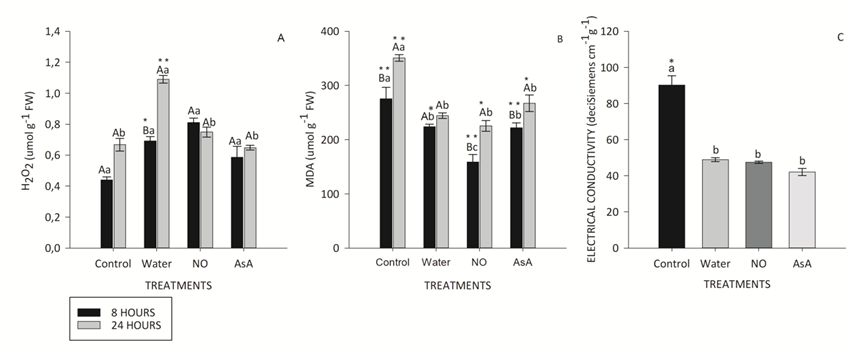Abstract:
Sunflower (Helianthus annuus L.) is a relevant oilseed species used as feed in human and animal nutrition and in multiple industrial applications. However, oilseeds need to deal with the loss of vigor when used as a propagule, due to loss of seed physiological quality (viability and vigor) caused by deterioration events. We have evaluated in the present study the effects of seeds priming techniques (water, ascorbic acid, and sodium nitroprusside) on vigor, germination, antioxidant enzymes and membrane integrity of stored sunflower hybrid HELIO 251 seeds. Germination parameters showed that non-primed seeds (control) delayed germination in almost 72 h while all primed seeds germinated 100% in 24 h. Electrolyte leakage and malondialdehyde levels were higher in non-primed seeds indicating higher degree of membrane damage. An increase in the activity of catalase and ascorbate peroxidase was also observed after 8 h of imbibition of primed seeds compared to non-primed seeds. Regarding superoxide dismutase, there was no significant differences between treatments after 8 h of imbibition, whereas the highest activity was after 24 h of imbibition in non-primed seeds. Therefore, it can be concluded priming with ascorbic acid or sodium nitroprusside exhibited better performance in germination of stored sunflower seeds, probably resulting from lower accumulation of reactive oxygen species and consequent reduced oxidative damage due to an efficient antioxidant enzyme system.
Index terms:
aging; oilseed; oxidative damage; priming; seed vigor

 Thumbnail
Thumbnail
 Thumbnail
Thumbnail
 Thumbnail
Thumbnail


